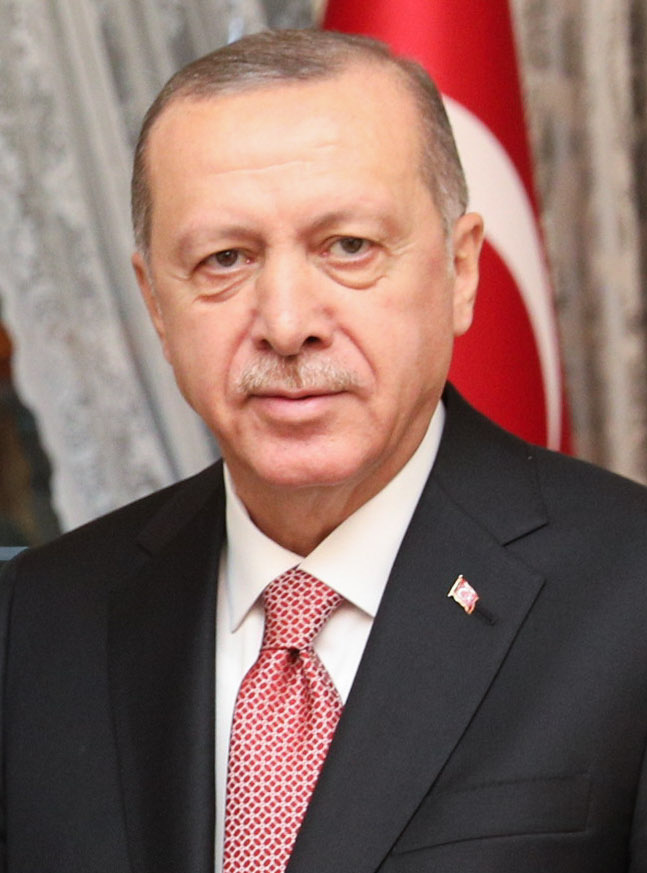December 25 2020

Turkish President Recep Tayyip Erdogan has made a slip of the tongue that has set off angry street protests in Iran.
Erdogan was speaking at a military victory parade in Baku December 10 to celebrate Azer-baijan’s victory over the Armenians in Nagorno-Karabakh. In that 44-day war, Azerbaijan won back several districts that had been populated by Azerbaijanis before the Armenians captured them almost 30 years ago.
Erdogan quoted a poem about the horrors of having Azerbaijan split up. Perhaps unbeknownst to Erdogan, the poem referred to the 1813 Treaty of Golestan and the 1828 Treaty of Turkmanchai, under which Russia permanently took from Iran its lands north of the Aras River, splitting the Azerbaijanis who lived then-as-now both north and south of the river.
A multitude of Azeris in Tabriz demonstrated in front of the Turkish consulate there, as many people seemed to take Erdogan’s remarks as a claim to the lands south of the Aras.
Iranian Foreign Minister Mohammad-Javad Zarif criticized Erdogan on his twitter account saying, “President Erdogan was not informed that what he ill-recited in Baku refers to the forcible separation of areas north of the Aras from the Iranian motherland,” adding testily, “NO ONE can talk about beloved Azer-baijan,” which sounded to many like an Iranian claim to the lands north of the Aras.
Iran even summoned the Turkish ambassador to hear Iran’s complaint about Erdogan’s “interventionist and unacceptable” remarks, according to Foreign Ministry spokesman Saeed Khatibzadeh. He said the ambassador was told, “The era of territorial claims and warmongering and expansionist empires” has long since ended.
He further said, “Iran will not allow anybody to meddle in issues about its territorial integrity.” But Erdogan said nothing of the sort.
It wasn’t clear why Tehran chose to make such an issue over a poetic citation. Some thought the Islamic Republic just wanted to pick a fight with Turkey, which it sees as growing in influence north of the Aras because the Azerbaijani victory was aided by Turkey. Others thought Iran was just trying to appease those in its Azeri minority who had reacted strongly to the Erdogan speech.
The next day Zarif and Turkish Foreign Minister Mevlut Cavuoglu talked on the phone. The Mehr news agency said Cavusoglu told Zarif that Erdogan was unaware of the sensitivity of the poem.
However, Turkey summoned the Iranian ambassador in Ankara that same day to protest Iran’s “aggressive” reaction to what Erdogan said. Turkey’s communications director, Fahr-ettin Altun, issued a statement charging that Iran had intentionally distorted the quotation “to fuel senseless tensions.”
Turkey’s Foreign Ministry did not describe the phone conversation between the two foreign ministers the way Mehr did. Instead, it said the Turkish foreign minister told Zarif Iran’s comments were “baseless” and unacceptable.
Altun said the poem “passionately reflects the emotional experience of an aggrieved people due to Armenia’s occupation of Azerbaijani lands.” The century-old poem does not make any such comments.
After a week, the Islamic Republic seemed to have second thoughts about picking a fight with Turkey over a poem. At a news conference December 14, President Rohani said it was extremely unlikely that Erdogan had meant any disrespect for Iran by reciting the poem. He said what was important was that the Turkish foreign minister had phoned to say no disrespect was intended. He added that the controversy had been resolved with that explanation.
Prof. Shireen Hunter of Georgetown University said the controversy erupted because the poem in question has become a “code word” for some in Aze-rbaijan who advocate bringing the Azerbaijanis living in Iran under the umbrella of the Republic of Azerbaijan—and that that is what set some officials in Tehran atwitter—fearing that Erdogan had decided to join that battle.
But that doesn’t man that suspicions of Turkey will go away. They have long been strong and have likely been exacerbated by the poem issue. Turkey has long given refuge to Azerbaijan nationalists from Iran, so there is a real basis for concern.
When Azerbaijanis were forced to move off the land that Armenians seized almost three decades ago, they routinely burned the homes they were leaving. Now that the Armenians who occupied those lands are being forced to leave, they are burning homes, cutting down trees, slaughtering animals and generally repeating the three-decade-old efforts to make the area as worthless as possible.
Hovsep, 35, a pig and sheep farmer, told reporters, “Did I put on a roof and make renovations so that an Azerbaijani can enjoy it? It is better to destroy the things you love than allow that.”
One way Turkey helped Azerbaijan was by supplying 1,500 to 2,000 Syrian troops that had been recruited by Turkey in Syria to battle Syrian government troops that are backed by Iran.
The BBC interviewed several of those Syrians who said they had been told they were going to Azerbaijan as peacekeepers and did not expect to be fighting a war there. An unknown number were killed and then hundreds, according to the BBC interviews, went on strike and refused to go into battle. After five or six days, they were flown back to Syria and left there without any pay.